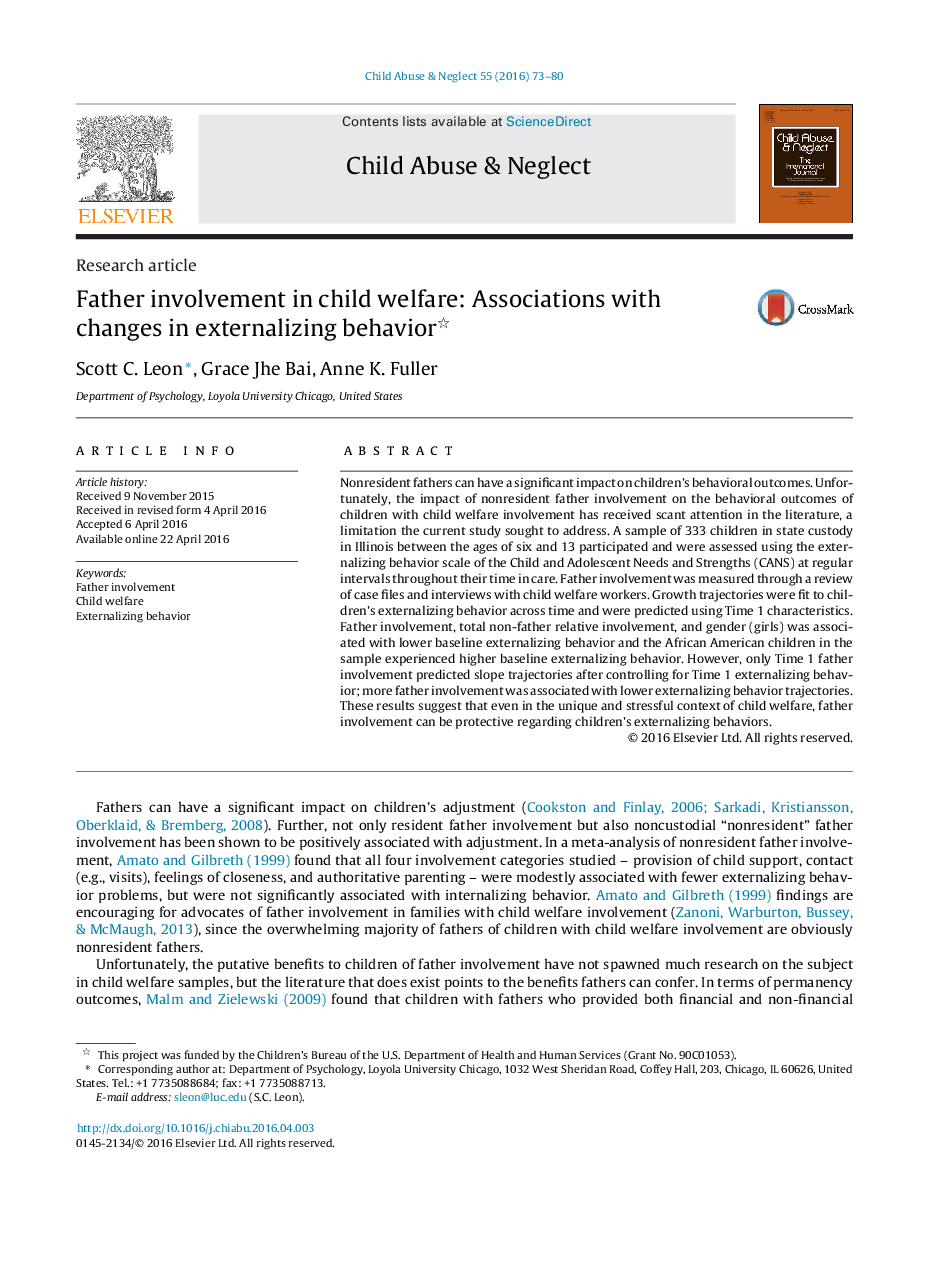| Article ID | Journal | Published Year | Pages | File Type |
|---|---|---|---|---|
| 6832324 | Child Abuse & Neglect | 2016 | 8 Pages |
Abstract
Nonresident fathers can have a significant impact on children's behavioral outcomes. Unfortunately, the impact of nonresident father involvement on the behavioral outcomes of children with child welfare involvement has received scant attention in the literature, a limitation the current study sought to address. A sample of 333 children in state custody in Illinois between the ages of six and 13 participated and were assessed using the externalizing behavior scale of the Child and Adolescent Needs and Strengths (CANS) at regular intervals throughout their time in care. Father involvement was measured through a review of case files and interviews with child welfare workers. Growth trajectories were fit to children's externalizing behavior across time and were predicted using Time 1 characteristics. Father involvement, total non-father relative involvement, and gender (girls) was associated with lower baseline externalizing behavior and the African American children in the sample experienced higher baseline externalizing behavior. However, only Time 1 father involvement predicted slope trajectories after controlling for Time 1 externalizing behavior; more father involvement was associated with lower externalizing behavior trajectories. These results suggest that even in the unique and stressful context of child welfare, father involvement can be protective regarding children's externalizing behaviors.
Related Topics
Health Sciences
Medicine and Dentistry
Perinatology, Pediatrics and Child Health
Authors
Scott C. Leon, Grace Jhe Bai, Anne K. Fuller,
